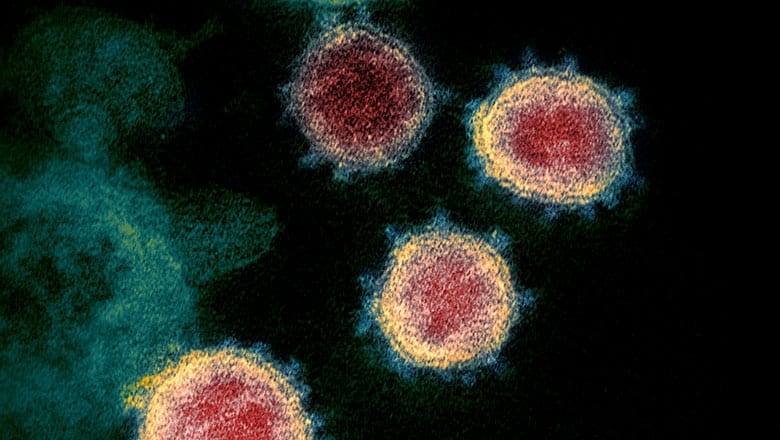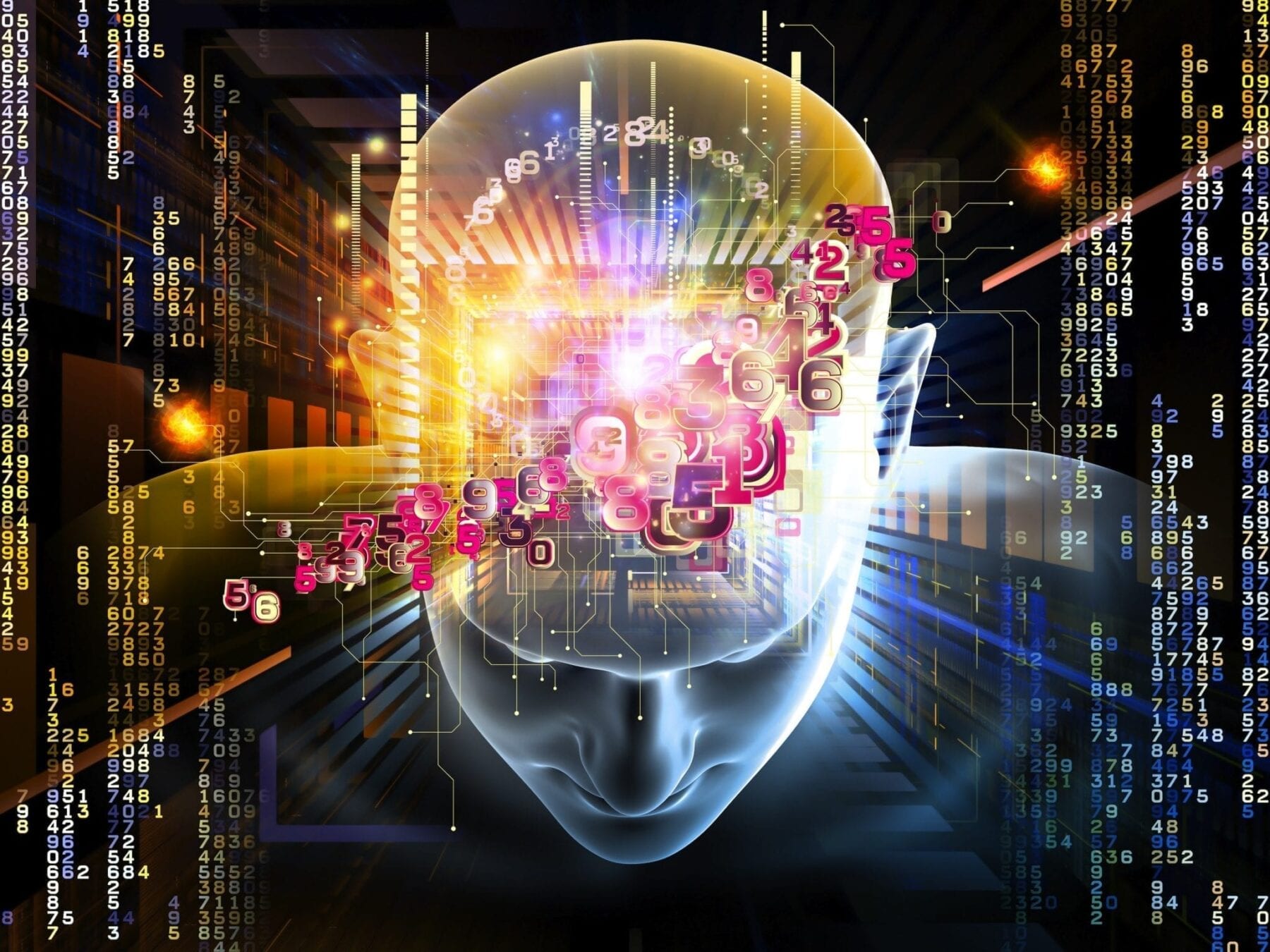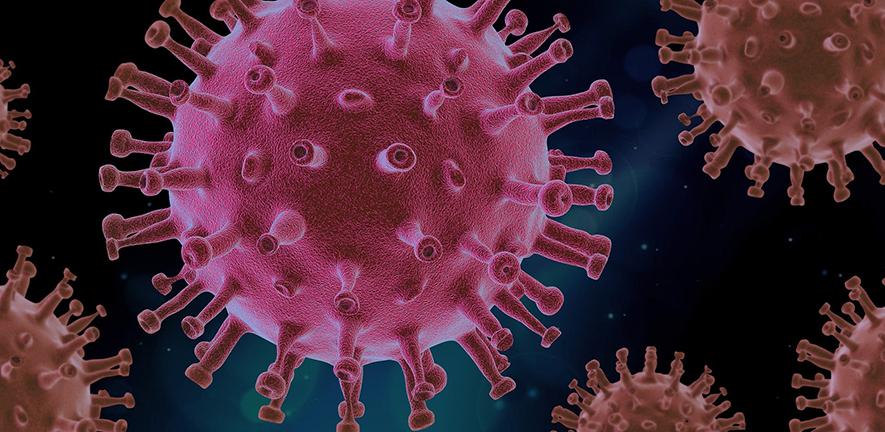Transmission electron micrograph of SARS-CoV-2 virus particles captured by NIAID
The AI model uses data from the COVID Symptom Study app to predict COVID-19 infection.
Researchers at King’s College London, Massachusetts General Hospital and health science company ZOE have developed an artificial intelligence diagnostic that can predict whether someone is likely to have COVID-19 based on their symptoms. Their findings are published today in Nature Medicine.
The AI model uses data from the COVID Symptom Study app to predict COVID-19 infection, by comparing people’s symptoms and the results of traditional COVID tests. Researchers say this may provide help for populations where access to testing is limited. Two clinical trials in the UK and the US are due to start shortly.
More than 3.3 million people globally have downloaded the app and are using it to report daily on their health status, whether they feel well or have any new symptoms such as persistent cough, fever, fatigue and loss of taste or smell (anosmia).
In this study, the researchers analysed data gathered from just under 2.5 million people in the UK and US who had been regularly logging their health status in the app, around a third of whom had logged symptoms associated with COVID-19. Of these, 18,374 reported having had a test for coronavirus, with 7,178 people testing positive.
The research team investigated which symptoms known to be associated with COVID-19 were most likely to be associated with a positive test. They found a wide range of symptoms compared to cold and flu, and warn against focusing only on fever and cough. Indeed, they found loss of taste and smell (anosmia) was particularly striking, with two thirds of users testing positive for coronavirus infection reporting this symptom compared with just over a fifth of the participants who tested negative. The findings suggest that anosmia is a stronger predictor of COVID-19 than fever, supporting anecdotal reports of loss of smell and taste as a common symptom of the disease.
The researchers then created a mathematical model that predicted with nearly 80% accuracy whether an individual is likely to have COVID-19 based on their age, sex and a combination of four key symptoms: loss of smell or taste, severe or persistent cough, fatigue and skipping meals. Applying this model to the entire group of over 800,000 app users experiencing symptoms predicted that just under a fifth of those who were unwell (17.42%) were likely to have COVID-19 at that time.
Researchers suggest that combining this AI prediction with widespread adoption of the app could help to identify those who are likely to be infectious as soon as the earliest symptoms start to appear, focusing tracking and testing efforts where they are most needed.
Our results suggest that loss of taste or smell is a key early warning sign of COVID-19 infection and should be included in routine screening for the disease. We strongly urge governments and health authorities everywhere to make this information more widely known, and advise anyone experiencing sudden loss of smell or taste to assume that they are infected and follow local self-isolation guidelines.– Professor Tim Spector, King’s College London
The Latest Updates from Bing News & Google News
Go deeper with Bing News on:
AI prediction
- AI model identifies over 500 toxic chemicals in e-liquids, revealing vaping’s hidden dangers
In a recent review published in the Scientific Reports, a group of authors used a graph-convolutional neural network (NN) to predict and analyze the thermal decomposition products of e-liquid flavors, ...
- Arm shares fall as soft forecast takes shine off AI optimism
Shares of Arm Holdings , fell 8% in premarket trading on Thursday as the chip designer's downbeat annual revenue forecast cooled some of the enthusiasm around the stock following its AI-powered jump ...
- Render price prediction: RNDR jumps 40%, is $15 next for this AI crypto?
RNDR leads with the most price growth in the last week. If bullish momentum continues, the token will trade above $11. The price of AI-based token Render [RNDR] has surged by over 40% in the last week ...
- AI Is Changing Rapidly, Here’s What Businesses Need to Know
Six months ago, PwC released its 2024 AI Business Predictions—which span everything from trust and safety to how AI will transform industries and drive product innovation. These changes are already ...
- Bittensor Price Prediction: TAO Plunges 6% As Experts Say This New AI Meme Coin Might Be The Best Crypto To Buy Now
According to GeckoTerminal, the Bittensor price was on the rise at the beginning of May, experiencing a 48% increase to the resistance of around $487. However, the bulls have not been able to reclaim ...
Go deeper with Google Headlines on:
AI prediction
[google_news title=”” keyword=”AI prediction” num_posts=”5″ blurb_length=”0″ show_thumb=”left”]
Go deeper with Bing News on:
AI predicting COVID-19 infection
- Four ways the vaccine rush will define infectious disease trends for CROs in 2024
GlobalData examines four of the key trends affecting contract research organizations (CROs) involved with infectious diseases.
- Google Unveils AI-Powered Molecular Structure Predictor With Unprecedented Accuracy
Google's new artificial intelligence model, AlphaFold 3, is the latest AI-centered medical breakthrough ... on July 29, 2020, amid the new coronavirus pandemic. Other important compounds, such as DNA, ...
- The Covid-19 Pandemic
With the acute phase of the Covid-19 pandemic fading even as the coronavirus persists and evolves, a new normal is taking shape around the world. The shot is no longer being manufactured or ...
- Swine Flu News
Interactions Between Flu Subtypes Predict Epidemic Severity ... triggered by an influenza infection, according to a new ... Study Finds High Prevalence of COVID-19 and Flu Co-Infections During ...
- Covid-19
The COVID-19 pandemic, caused by the coronavirus SARS ... 7 strain is driving the current wave of Covid infections in China. As of now, India reported four cases of the Omicron sub-variant BF.
Go deeper with Google Headlines on:
AI predicting COVID-19 infection
[google_news title=”” keyword=”AI predicting COVID-19 infection” num_posts=”5″ blurb_length=”0″ show_thumb=”left”]











